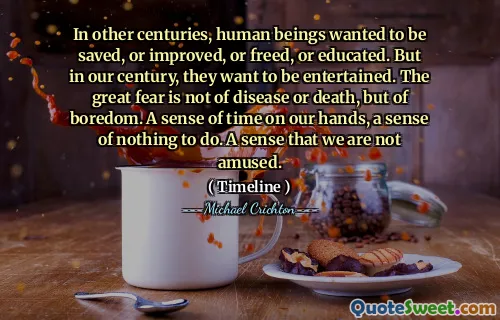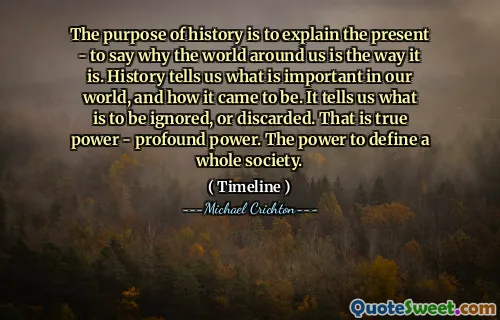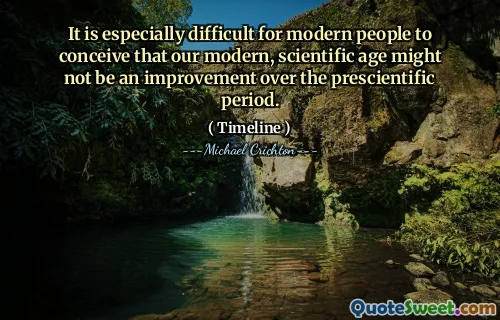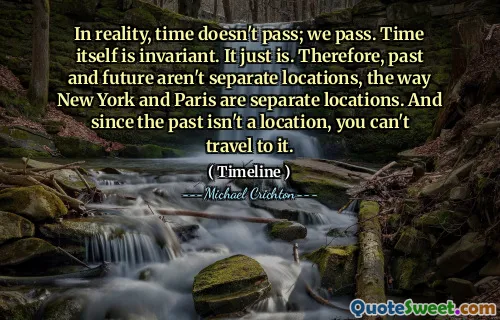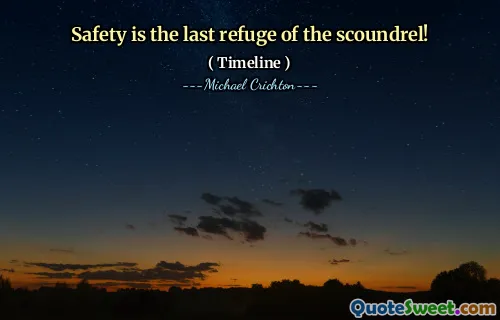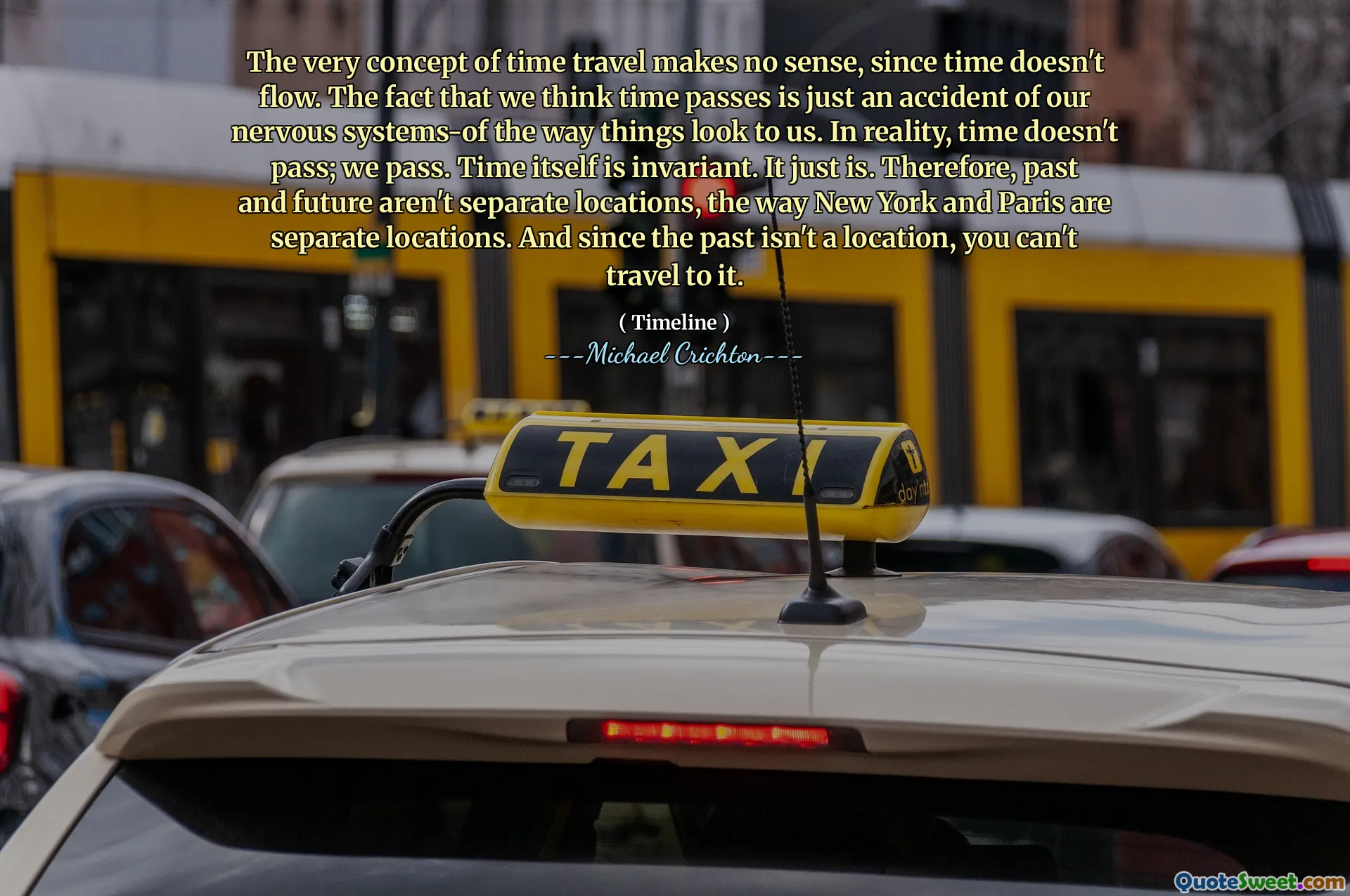
The very concept of time travel makes no sense, since time doesn't flow. The fact that we think time passes is just an accident of our nervous systems-of the way things look to us. In reality, time doesn't pass; we pass. Time itself is invariant. It just is. Therefore, past and future aren't separate locations, the way New York and Paris are separate locations. And since the past isn't a location, you can't travel to it.
In Michael Crichton's book "Timeline," the author presents a thought-provoking perspective on time travel, arguing that the very idea contradicts our understanding of time itself. He suggests that time does not flow in the way we perceive; instead, it exists as a constant, and our sense of its passage is merely a result of our nervous system's interpretation. This implies that while we experience a sequence of events, time remains unchanged and serves as a backdrop to our experiences.
Moreover, Crichton challenges the notion of past and future as distinct places that can be traveled to, comparing them to geographical locations like New York and Paris. Since time is invariant and does not actually 'pass,' the past cannot be treated as a physical destination. This reevaluation of time invites readers to reconsider their notions of reality and the limitations of time travel, suggesting that movement through time may be fundamentally different from what we understand or imagine.
